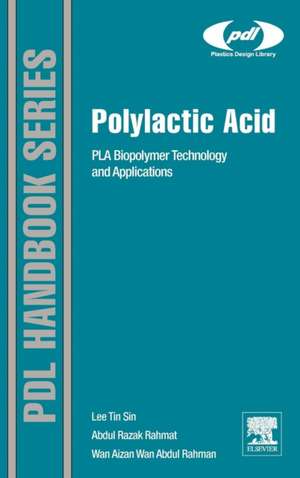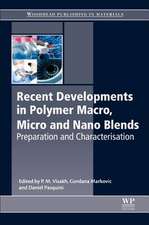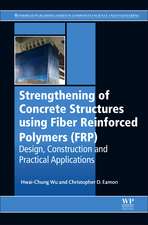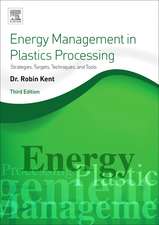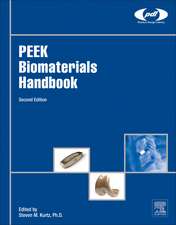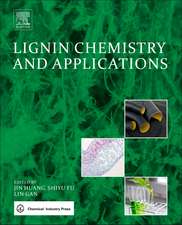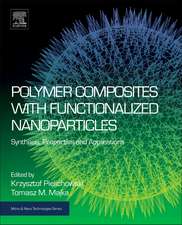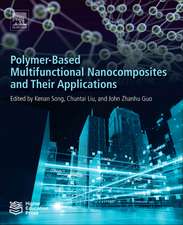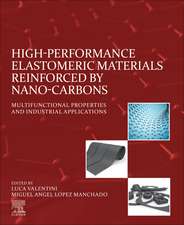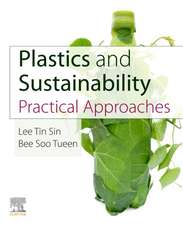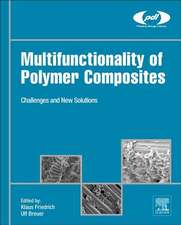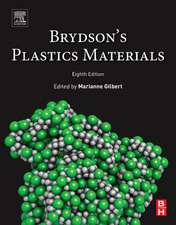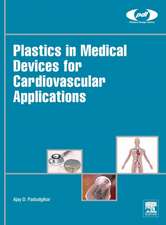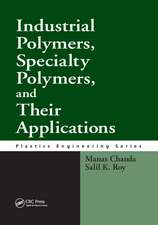Polylactic Acid: PLA Biopolymer Technology and Applications: Plastics Design Library
Autor Lee Tin Sinen Limba Engleză Hardback – 19 oct 2012
- An essential reference for engineers, scientists and product designers considering switching to a sustainable plastic
- Covers the properties, synthesis and polymerization of PLA, and processing techniques involved in fabricating parts from this polymer
Din seria Plastics Design Library
- 20%
 Preț: 843.44 lei
Preț: 843.44 lei - 24%
 Preț: 1051.90 lei
Preț: 1051.90 lei - 23%
 Preț: 1297.01 lei
Preț: 1297.01 lei - 9%
 Preț: 1010.64 lei
Preț: 1010.64 lei - 9%
 Preț: 1284.33 lei
Preț: 1284.33 lei - 28%
 Preț: 742.62 lei
Preț: 742.62 lei - 25%
 Preț: 924.71 lei
Preț: 924.71 lei - 24%
 Preț: 639.28 lei
Preț: 639.28 lei - 24%
 Preț: 927.35 lei
Preț: 927.35 lei - 23%
 Preț: 808.47 lei
Preț: 808.47 lei - 5%
 Preț: 638.39 lei
Preț: 638.39 lei - 23%
 Preț: 604.24 lei
Preț: 604.24 lei - 9%
 Preț: 1425.34 lei
Preț: 1425.34 lei - 23%
 Preț: 685.29 lei
Preț: 685.29 lei - 13%
 Preț: 1231.87 lei
Preț: 1231.87 lei - 23%
 Preț: 1520.22 lei
Preț: 1520.22 lei - 9%
 Preț: 1242.23 lei
Preț: 1242.23 lei - 23%
 Preț: 849.90 lei
Preț: 849.90 lei - 23%
 Preț: 939.42 lei
Preț: 939.42 lei - 23%
 Preț: 938.47 lei
Preț: 938.47 lei - 23%
 Preț: 1015.82 lei
Preț: 1015.82 lei - 9%
 Preț: 1524.00 lei
Preț: 1524.00 lei - 29%
 Preț: 1210.89 lei
Preț: 1210.89 lei - 18%
 Preț: 880.13 lei
Preț: 880.13 lei - 19%
 Preț: 1522.28 lei
Preț: 1522.28 lei - 24%
 Preț: 727.69 lei
Preț: 727.69 lei - 16%
 Preț: 759.03 lei
Preț: 759.03 lei - 9%
 Preț: 843.44 lei
Preț: 843.44 lei - 23%
 Preț: 695.34 lei
Preț: 695.34 lei - 9%
 Preț: 804.32 lei
Preț: 804.32 lei - 17%
 Preț: 1089.51 lei
Preț: 1089.51 lei - 23%
 Preț: 1144.96 lei
Preț: 1144.96 lei - 23%
 Preț: 1259.53 lei
Preț: 1259.53 lei - 9%
 Preț: 645.57 lei
Preț: 645.57 lei - 28%
 Preț: 1318.75 lei
Preț: 1318.75 lei - 9%
 Preț: 1249.48 lei
Preț: 1249.48 lei - 24%
 Preț: 933.91 lei
Preț: 933.91 lei - 9%
 Preț: 803.90 lei
Preț: 803.90 lei - 9%
 Preț: 927.17 lei
Preț: 927.17 lei - 24%
 Preț: 919.72 lei
Preț: 919.72 lei - 18%
 Preț: 1499.61 lei
Preț: 1499.61 lei - 9%
 Preț: 1511.15 lei
Preț: 1511.15 lei - 24%
 Preț: 729.68 lei
Preț: 729.68 lei - 28%
 Preț: 852.41 lei
Preț: 852.41 lei - 18%
 Preț: 1086.04 lei
Preț: 1086.04 lei - 19%
 Preț: 1196.79 lei
Preț: 1196.79 lei
Preț: 1364.03 lei
Preț vechi: 1868.54 lei
-27% Nou
Puncte Express: 2046
Preț estimativ în valută:
261.04€ • 271.52$ • 215.50£
261.04€ • 271.52$ • 215.50£
Carte tipărită la comandă
Livrare economică 14-28 aprilie
Preluare comenzi: 021 569.72.76
Specificații
ISBN-13: 9781437744590
ISBN-10: 1437744591
Pagini: 352
Dimensiuni: 152 x 229 x 25 mm
Greutate: 0.61 kg
Editura: ELSEVIER SCIENCE
Seria Plastics Design Library
ISBN-10: 1437744591
Pagini: 352
Dimensiuni: 152 x 229 x 25 mm
Greutate: 0.61 kg
Editura: ELSEVIER SCIENCE
Seria Plastics Design Library
Public țintă
Industry sector/ academic specialization, Institutions of higher education, biodegradable product industry, research instituteLikely level of highest academic qualification achieved so far PhD
Institutions readership ICheme, IUPAC, IMechE, Society of Plastic Engineers
Addition target reader Environmentalist, government sectors keen to reduce plastic wastes. Benefits 1. Aware the usage of polylactic acid 2. Understand the functionality of polylactic acid other than biodegradable polymer for domestic usage. 3. Widen the research scopes of polylactic acid
Cuprins
1. Initial Glance over Polylactic acid2. Synthesis and Production of Polylactic Acid3. Thermal Properties of Polylactic acid4. Chemical Properties of Polylactic acid5. Mechanical Properties of Polylactic Acid6. Rheology Properties of Polylactic Acid7. Degradation and Stability of Polylactic Acid8. Applications of Polylactic Acid
